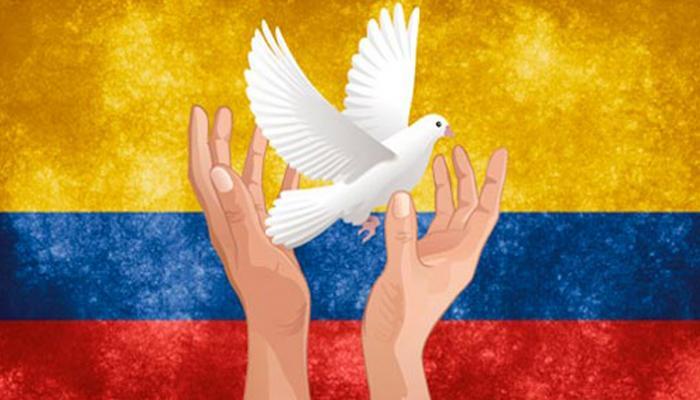Havana, September 24 (PL-RHC)-- Delegations of the Colombian government and the Revolutionary Armed Forces of Colombia-People's Army (FARC-EP) signed on Wednesday an agreement on special jurisdiction for peace in Colombia.
The signing ceremony took place during a round of peace talks in Havana and was attended by Cuban President Raul Castro and his Colombian counterpart, Juan Manuel Santos, as well as a leader of the FARC-EP, Timoleon Jimenez.
The text was also signed by guarantors of these dialogues, Rodolfo Benitez from Cuba and Dag Nylander of Norway, and accompanying countries, represented by Luis Naira of Chile and Roy Chaderton of Venezuela.
According to the joint statement released both parties reaffirmed their commitment to the agreements reached to date:
These are: 'Towards a New Colombia Countryside: Rural Integrated Reform', 'Political Participation: democratic opening to build peace' and 'Solution to the Problem of Illegal Drugs'.
At the same time, they reaffirmed their commitment to a formula of justice that meets the rights of victims and contribute to building a stable and lasting peace.
A Comprehensive System of Truth, Justice, Reparation and Non-repetition will be built, so a Commission for Clearing up the Truth, Coexistence and Non-repetition will be created and we have achieved important agreements on reparation for victims.
As for the component of justice, we agreed to create a Special Jurisdiction for Peace, which will have Courthouse and a Tribunal for Peace, points out the text.
Chambers and the Tribunal will be mainly comprised of Colombian judges, and will have a minority participation of foreigners who will meet the highest requirements.
The essential function of the Chambers and the Tribunal for Peace is to end impunity, get the truth, contribute to the reparation of victims and prosecute and impose sanctions on those responsible for serious crimes committed during the armed conflict, stresses the document.
Justice component foresees that by the termination of hostilities, the Colombian State will grant the broadest possible amnesty for political and related crimes.
An amnesty law will specify the scope of connectedness, according to the joint statement.
The offenses defined in national legislation that correspond to crimes against humanity, genocide and serious war crimes, including serious crimes such as hostage-taking or other severe deprivation of liberty and torture will not be subject to amnesty or pardon, according to the document.
Forced displacement, forced disappearances, extra-judicial executions and sexual violence, will not be subject to amnesty either, and such acts shall be subject to investigation and prosecution by the Special Court for Peace.
The Special Court for Peace shall have jurisdiction over all those who directly or indirectly participated in the armed conflict, including the FARC-EP and state agents.
The Special Court for Peace provides for two types of procedures: one for those who recognize truth and responsibility, and one for those who do not accept it or do it late.
In the first case, sentence they will be imposed based on recognized behavior after being contrasted the investigations of the Prosecutor General's Office. The latter will face an adversarial trial before the Tribunal, the statement said.
The sanctions imposed by the Court will have the essential aim of satisfying the rights of victims and consolidate peace and should be as restorative and reparative function of the damage.
For those who claim responsibility for the crimes, the penalty will have a component of restriction of freedoms and rights to ensure compliance with the restorative functions. The penalties for those who recognize to have committed serious crimes will have a minimum duration of five years and a maximum of eight of effective restriction of freedom, under special conditions.
People making late recognition of crimes before the Court shall be punished with imprisonment from five to eight years, under ordinary conditions, says the text. To qualify for the alternative penalty, will be required that the recipient commits to contribute with his social rehabilitation through work, training or study for as long as he is deprived of liberty.
People who refuse to recognize responsibility for such crimes will be found guilty and sentenced to imprisonment up to 20 years, under ordinary conditions, says the joint statement.
To access any special treatment within the Special Court for Peace is necessary to provide full truth, compensate the victims and guarantee non-repetition. In the case of the FARC-EP, participation in the comprehensive system shall be subject to the surrender of weapons, which should start no later than 60 days after the signing of the Final Agreement.
The transformation of the FARC-EP in a legal political movement is a shared goal, which will have the full support of the Government in the terms to be agreed.


